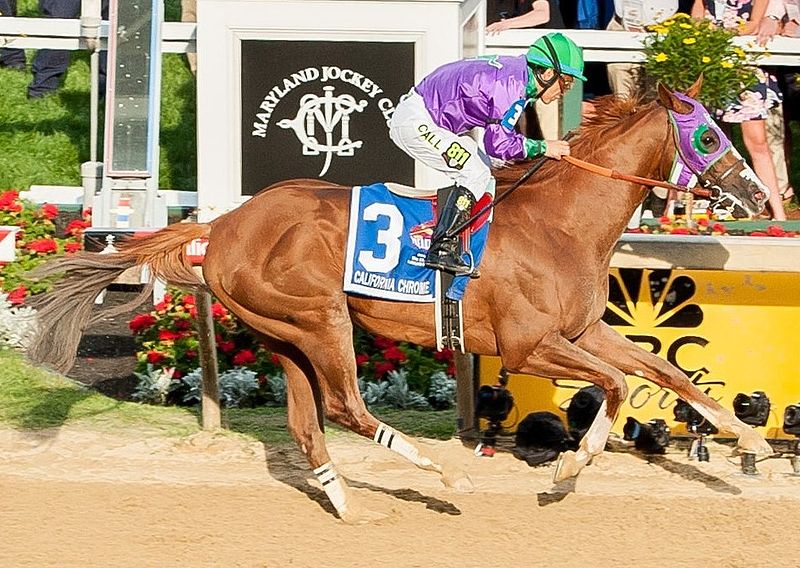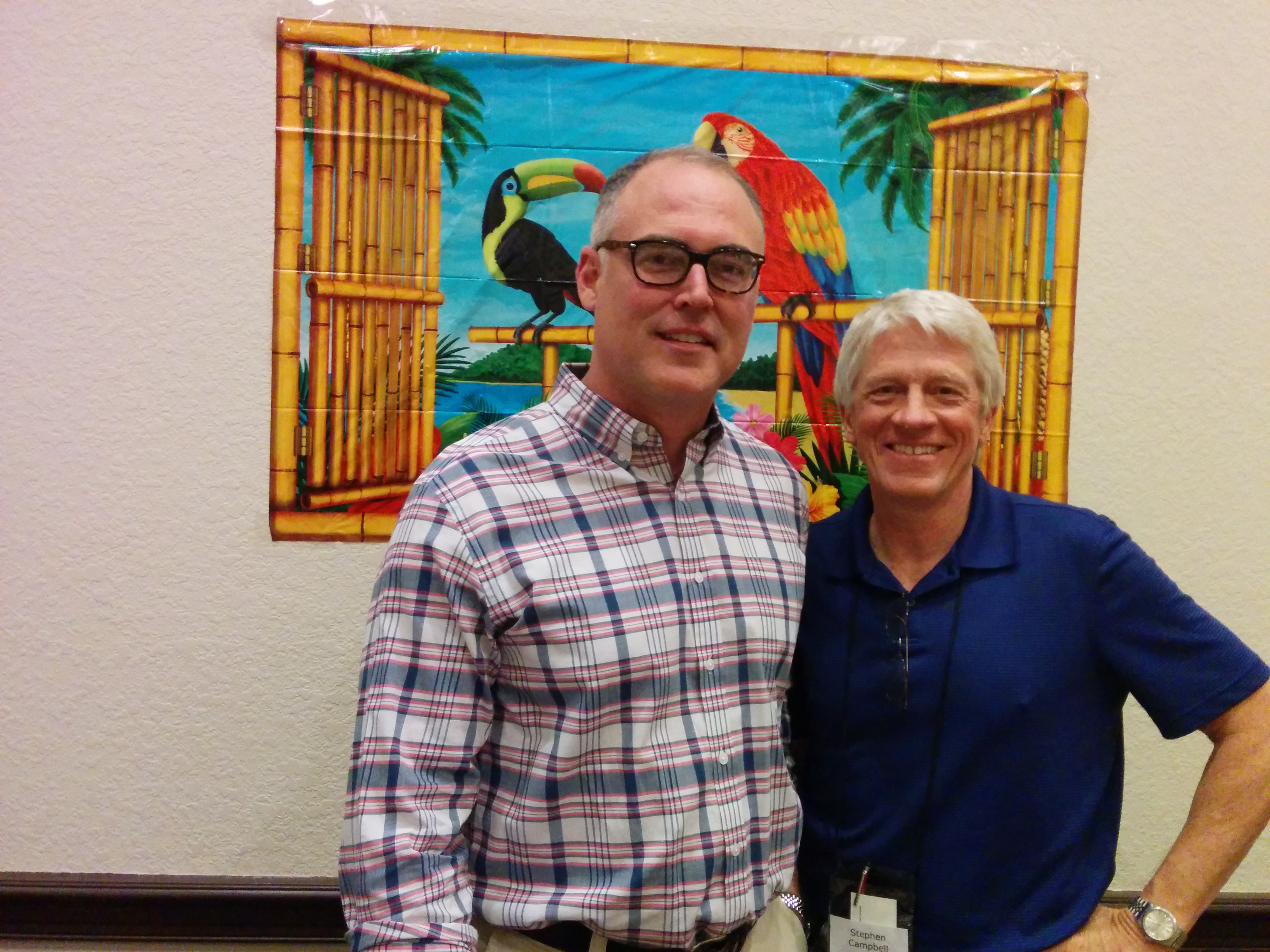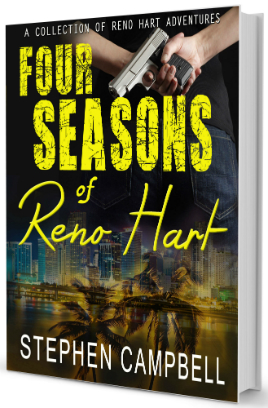by Stephen Campbell | Dec 11, 2014 | Writing

When I start a story, I typically have no idea what my character’s names will end up being. As proof, I offer the working title of a novel I’m currently editing. The file name in Scrivener is Smith One.
This book started with two primary characters. Smith and Hart. For the sake of simplicity, I used John Smith and Jessica Hart. Why Jessica and John? For some strange reason when I need to come up with first names quickly, they always begin with the letter J.
After getting a few chapters into the story I changed Smith to Adler, so my protagonist (at the time) was now John Adler. Still lame, but better. He was starting to come to life. Unfortunately, the female character was not. My plan was for her to be Robin to Adler’s Batman, or maybe Watson to Adler’s Holmes, but it wasn’t happening. Did she need a better name?
Scrivener has a first name generator, but it didn’t help. I kept changing her name, but she kept shaking her head no.
Let me describe this character for you. She’s a 5’7″ ball of energy with long, nearly uncontrollable red hair. A former military police officer, she left the army after six years and turned into a corporate security drone. Then something happened that flipped her life completely upside down. She’s a strong woman, and she wasn’t going any further until she had a valid name.

Here’s where the story completely stalled out for me. Could a character’s name really be this important during this early stage of the writing process?
I pondered this for an hour or so, then I remembered a conversation I had with Peter Leonard earlier in the year. He shared some advice he received from his well know father, Elmore, about character (more…)
by Stephen Campbell | Jun 9, 2014 | Reading, Writing

California Chrome Winning the Preakness - Creative Commons Image Via Wikipedia
It was a riveting story. Two older guys buy a broken-down horse, breed her with the cheapest horse they can find, and the offspring becomes a national hero. The horse that could finally put an end to horse racing’s 36 year wait for the next triple crown winner.
There’s much more to the story, but you probably know it already. The 77 year old trainer. The owners turning down millions for a partial interest in the horse, but that’s not the point of this post.
If this were a novel there are plenty of ways the story could go that would be satisfying, win, lose or draw. Endings that would cause readers to reach for the next book in the series, or another book the author has written.
Of course, the California Chrome story didn’t end the way most people wanted, and that’s where it gets instructive. If you write books for publication, you want a great plot, richly developed characters, exotic settings, and to take the reader into an exciting world. But then you’ve got to write (more…)
by Stephen Campbell | Mar 5, 2014 | Writing
Like all new writers, I’ve been searching for the secret. The key that unlocks the door to writing success. The key that the big time, successful writers have that beginning writers must try and learn. In other words, I’m searching for the Holy Grail of writing.
Well, I got lucky and was able to discover this key at Sleuthfest 2014, in Orlando over the past weekend.
If you’re not familiar with Sleuthfest, it’s the annual conference of the Florida chapter of the Mystery Writers of America. This year’s conference was the 20th.
The conference is primarily for writers, but there were a number of mystery fans there as well, taking advantage of the opportunity to learn from, and hang out with, some of the top writers in the crime fiction genre. This year there were three Guests of Honor. Laura Lippman, Ace Atkins, and Hank Phillippi Ryan. All of the three gave keynote speeches and sat in on a variety of panels.
The panels, primarily educational, ran the gamut from craft related subjects, like plotting, revising and the use of setting in books, to the more detailed and technical issues involved in this new era of publishing. Things like audio book creation, the use of social media to build author platforms, and techniques for partnering with other authors to cross promote one another’s work.
There were also opportunities to meet with agents and editors, as well as roundtable discussions with each of these well-dressed types.
I went to as many panels as possible, looking for the secret. Successful, published authors, most of whom had many books under their belts, populated each panel. Surely they had the secret.
I listened closely, took notes where I could, and then reviewed them at night, looking for this key, or secret. I had many questions on how things SHOULD be done if one hopes to become a successful writer.
One of those questions involved plotting. What do successful writers do about plotting? Do they outline, write a detailed synopsis and then use it as a blueprint for their bestselling novels? Well, I quickly got the answer to that question when a moderator asked the audience how many plotted their novels ahead of time. About half raised their hands. She then asked how many wrote by the seat of their pants. The other half raised their hands. Interesting. Obviously half were doing it correctly and half were not.
Then the moderator asked the same question of the panel. Successful, published authors all. Here was my chance to learn the secret. One by one she asked them. The first said she outlined, but her story often varied from the outline. The second said she never outlined. She just started writing. The third, said he based his story on either a cover idea, an opening sentence he liked, or some other general notion, but he didn’t outline. The fourth said he wrote a detailed outline. Always. Hmmm, fifty-fifty. Exactly the same as the audience.
Okay, maybe there wasn’t a secret to writing, at least when it came to whether or not to plot. But surely there was to editing and revisions. I had circled a panel on revisions because that’s an area where I knew there had to be a secret that I didn’t understand. Do great writers edit as they go, coming out with brilliant first drafts? Or, do they write quickly, and then shape the story during the revision stage?
With this question, there was a bit more uniformity, though statistically, there was no clear answer. One author quickly writes first drafts, and then shapes while revising. Two others took more time with first drafts, and then did second or third drafts that were close to what would be sent to their editors. The fourth, wrote only one draft, but edited, very closely, as he wrote.
Darn it! Once again, no secret. Each of those writers seemed to have their own process for writing a book. Maybe I was looking in the wrong place. Maybe the keynote speakers, the biggest, most successful authors among our group, would share the secret.

I arrived on Friday morning, and the Friday keynote speaker was Ace Atkins, the man hired to take on the Spenser series from the estate of Robert B. Parker. Ace is a fabulous and accomplished writer, but taking on the responsibility for one of the great P.I. series of my lifetime, turned him into a (more…)





